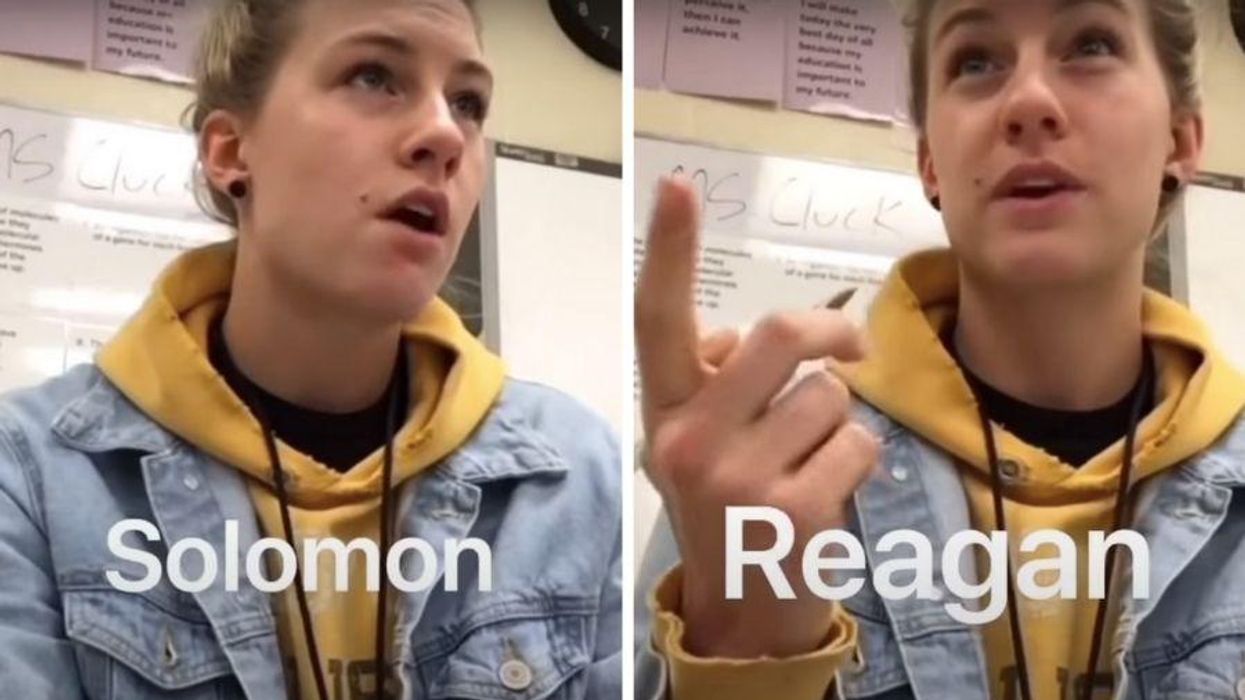
This story originally appeared on 03.08.22
Anyone who has lived in the U.S. with a nontraditionally American name knows how hard it can be to get some people to pronounce your name correctly.
My husband’s name is Javad, which is only two syllables and objectively not hard to say (juh-VAHD), but I’ve watched many people mutilate it over the years even after being given the correct pronunciation. I remember one time watching him introduce himself to a man clearly and slowly—twice—and the man still called him “Bob,” like he couldn’t even digest this name he’d never heard before, much less pronounce it.
As a kid, at the beginning of every school year or every time a substitute teacher came around, it was common for my husband to have to correct the pronunciation of his name. Not the end of the world, but annoying. I can’t imagine how much more annoying it is for people with longer names that aren’t familiar to many American ears.
A video of a teacher mispronouncing every student’s name has gotten a huge response on Reddit, presumably for the humor of it. The names she reads off the attendance list are ones that are common enough in the U.S. that pronunciation normally wouldn’t be an issue—Luke, Jacob and Hunter, for example. But she manages to bungle them anyway—yes, even Luke—and it is genuinely funny.
But saying Luke as “Luck” and Hunter as “Hoonter” did more than just give her students a giggle. It also puts every student on the same playing field. If there were students in her class with less common names that might easily be mispronounced, they now find themselves in the same shoes as all of their classmates. They no longer stand out as “the kid with the name the teacher didn’t know how to pronounce.”
If every kid has to correct the teacher, then doing so is no big deal. No one is “othered” by it. It’s just a funny thing they all do. And it also gives the teacher a chance to hear each kid’s name from their own mouth instead of trying to read it off a list without ever hearing it.
The only risk here is accidentally pronouncing an unfamiliar name correctly the first time, but that seems unlikely. And it actually would probably just add another layer of humor to the already light atmosphere. Because a teacher mispronouncing a student’s name can have a lasting impact, it’s important to do what we can to keep it from happening.
The thing about unfamiliar names is that they usually aren’t as hard to pronounce as people make them out to be. They’re simply unfamiliar.
I mean, if we can pronounce Beethoven (which doesn’t look like it sounds), Tchaikovsky (which has all those consonants) and Dostoyevsky (which has four syllables) without even thinking about it, we can learn to pronounce any name. In fact, Nigerian actress Uzo Aduba illustrated this exact point in a story about how her last name always made her the first kid in roll call and she was concerned that no one knew how to pronounce her name right. Her mother reassured her, “If they can learn to say Tchaikovsky and Michelangelo and Dostoyevsky, they can learn to say Uzoamaka.”
It might take some practice, and we might have to ask people’s forgiveness if it takes us a while, but it’s not impossible.
Some people in the comments on Reddit pointed out that the teacher’s roll call was an innovative way of making every student feel equally welcomed in the classroom. But even more said it reminded them of a hilarious Key & Peele skit about a hard-nosed substitute teacher mispronouncing students’ names and getting angry when they corrected him.
A bit of a language warning in case you have little ones around, but it’s great if you haven’t seen it. You’ll never see the name “Blake” the same way again.
